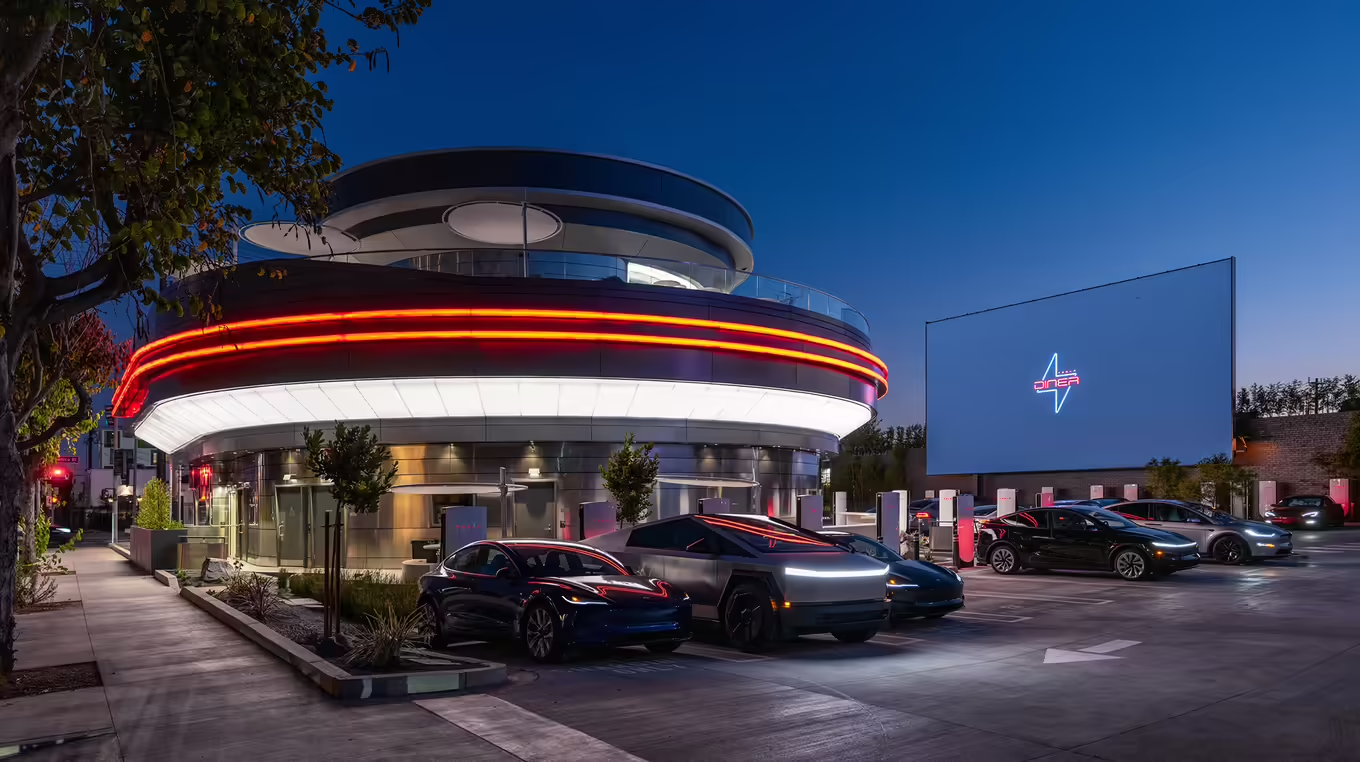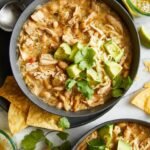The much-hyped Tesla Diner officially opened its doors in Hollywood this week, complete with carhop delivery, humanoid robots serving popcorn, and a menu that reads more Route 66 than Silicon Valley.
Styled as a retro-futuristic homage to classic American diners, the project comes straight from Elon Musk’s ever-expanding constellation of consumer experiences. But the most surprising element isn’t the aesthetic or the novelty—it’s the menu. With wagyu chili, “epic bacon,” and double-decker buttermilk waffles topped with fried chicken, Tesla’s new culinary venture is serving up an identity crisis on a silver platter.
Not so ‘epic’ fare
The menu promises “epic” fare, a word reportedly mandated by Musk himself. Everything on the menu has to be “epic,” or it doesn’t make the cut, lead operator Bill Chait said in a statement. While that might explain the wagyu beef chili with New School American cheese sauce, it does little to square the disconnect between Tesla’s planetary branding and its decidedly meat-heavy offerings.
Tesla Diner
For a company that helped mainstream electric vehicles as a climate-conscious status symbol, the Tesla Diner’s commitment to environmentalism appears to end at the charging port. The only visible nods to sustainability on the menu are a passing mention of local sourcing and the inclusion of oat milk as a no-cost substitution.
The irony deepens when considering the diner’s location in Los Angeles, a city often synonymous with plant-forward innovation. Yet among the more than 30 menu items, just one explicitly calls out a “sub veggie patty” option on the Tesla Burger, and another allows guests to “add veggie patty” to the market salad—for an upcharge of $4.50. No fully plant-based entrée is listed; even the fries, which are fried in beef tallow, are off-limits for guests seeking a vegan option.
Eric Greenspan, the chef behind the operation, is no stranger to indulgence. Known for his high-octane sandwiches and the founder of New School American Cheese, Greenspan’s culinary identity is anchored in bold flavors and nostalgia-driven comfort food. The Tesla Diner appears to follow suit. The Tesla Burger includes smashed beef patties, caramelized onions, and “Electric Sauce” on a Martin’s Potato Roll. Guests can customize it with wagyu beef chili, fried eggs, or even substitute the patty—but those looking to avoid animal products will need to cobble together sides and modifications with little clarity around full ingredient transparency.
The diner also opened to poor reviews and customer complaints. Fellow tech CEO Noah Aron reported that the burgers and sandwiches “were pretty awful,” calling the fried chicken and waffles a “soggy, soggy sandwich.”
Subbing beef for gasoline?
It’s an odd positioning for the leading electric vehicle company that touts its commitment to “accelerating the world’s transition to sustainable energy.” The livestock industry is responsible for approximately 14.5 percent of global greenhouse gas emissions, according to the United Nations Food and Agriculture Organization. Beef production is among the most resource-intensive, contributing to deforestation, water pollution, and methane output. In the US, recent data from the Environmental Protection Agency attributes nearly 10 percent of all greenhouse gas emissions to agriculture, with beef cattle as leading contributors.
 Tesla Diner
Tesla Diner
Even fast-food giants like Burger King and McDonald’s have responded to mounting pressure by rolling out plant-based or flexitarian options in major markets. Yet Tesla’s menu reads more like a homage to pre-climate-crisis Americana.
To its credit, the menu does call out regional and artisanal sourcing for many ingredients. But transparency around supply chains doesn’t necessarily equate to sustainability—especially when the protein choices rely heavily on beef, bacon, and fried chicken.
“Responsible sourcing” is also a vague and often misleading term without defined metrics. Tesla doesn’t disclose what criteria it used to select its suppliers, nor what emissions data it considered in crafting the menu.
There’s also no indication that regenerative or organic practices are a priority, or whether plant-forward options will expand in the future. And while oat milk is offered at no extra cost, its placement on the otherwise meat-heavy menu looks more like a footnote rather than a featured value.
The disconnect is perhaps best captured by the diner’s own language. A note at the bottom of the menu reads, “The overwhelming majority of the ingredients sourced for the Tesla Diner are rooted in responsibly sourced, sustainable local products available within a full charge of a Tesla.” The message, presumably meant as a flex of green values, reads out of place on a menu that looks more like a climate cheat day than a mission-aligned extension of the top-selling electric vehicle brand.
Sure, it’s a diner menu, and that may appeal to car culture traditionalists, but it sits at odds with shifting consumer appetites. A 2024 survey from the International Food Information Council found that more than half of Americans are actively trying to eat more plant-based meals, and younger generations in particular are leading the shift away from red meat. In Los Angeles—where oat milk is a default and vegan diners are no longer niche—the absence of fully plant-based entrées is especially conspicuous. For a brand built on acceleration and future-facing ideals, the Tesla Diner’s culinary stance feels oddly parked in the past.





